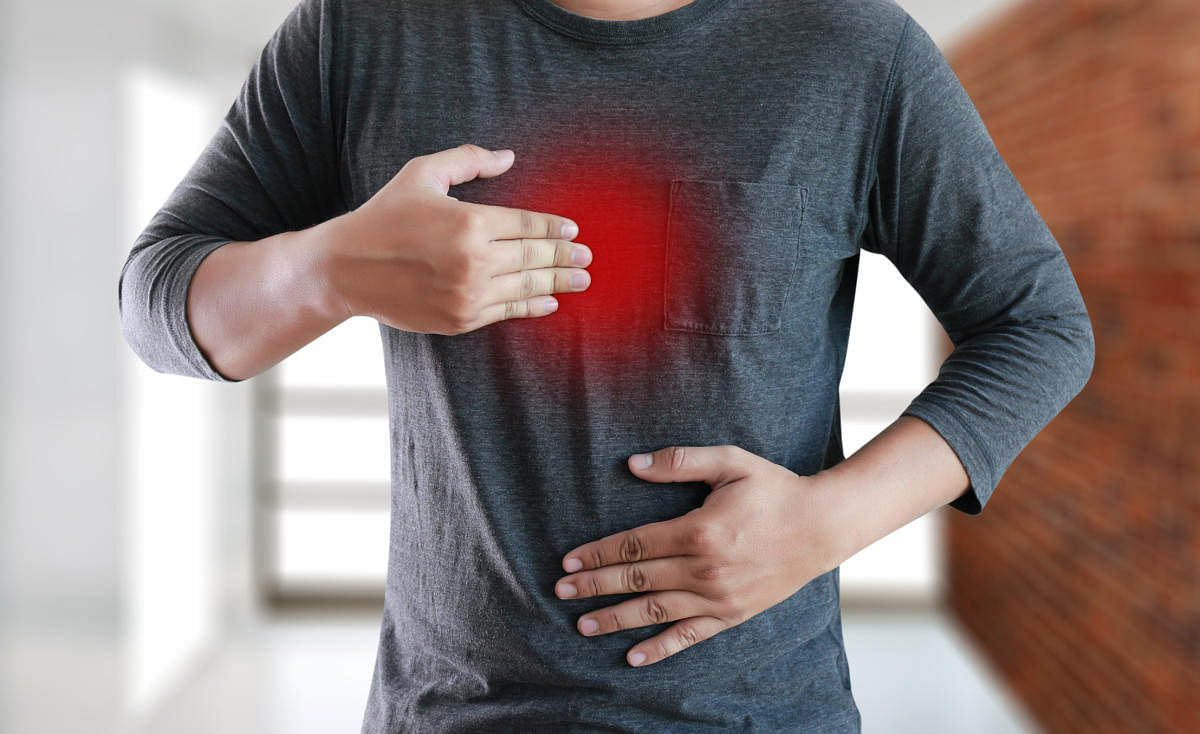
One’s routine, eating pattern, exercise regime, the little indulgences all form our lifestyle and it is only natural that these choices have an impact on our health. Gastroesophageal reflux is one such ailment that is a direct consequence of habitual lifestyle choices. Men or women, young or old, this health disorder may affect individuals of all strata. What exactly is gastroesophageal reflux or GERD? In simple words, it is the queasy, burning, bloated, need-to-burp feeling after a fabulous meal. In expert terms, GERD may be explained as the malaise experienced as a result of acid reflux incurred due to indigestion as the acid travels back from the stomach to the esophagus.
Discomfort due to acid reflux is often disregarded by people at large due to the ease of relief offered on simple self-medication. However, the condition requires expert attention if it occurs more than twice a week. The habitual consumption of spicy, fatty, or acidic food items like alcohol, caffeine, and carbonated drinks is the main catalyst for this condition. Those diagnosed with this condition may lead to bad breath, nausea, excessive chest pain, regurgitation of food or sour liquid, or even disturbed sleep. Although easily dismissed at its initial stages, gastroesophageal reflux should not be left untreated. As the condition persists, it may eventually cause further complications such as esophageal ulcers, esophagitis, and aspiration pneumonia. Here are the five lifestyle changes one can adapt to avoid the many consequences of GERD:
Small bytes: Consume food in smaller portions in order to speed up the process of digestion. Consuming food slowly also goes a long way to help prevent the stomach from extending and forcing the acid upward. Rapid intake of food produces more acid reflux.
Dietary triggers: High-fat foods such as fried or fast foods are a big no for those diagnosed with GERD. Citrus fruits, tomatoes, onions, mint, coffee, soda, and alcohol are also discouraged.
Workout: Like all machines, in order to work in perfect order it needs to be well exercised. Even simple exercises like walking or light yoga help immensely with
inhibiting the impediments caused by this condition. Maintaining a healthy and constant weight is crucial, GERD seems to be most prevalent in adults who are overweight or obese.
Avoid stress: Esophageal motility and the functioning of your lower esophageal sphincter are affected by stress. This means that the contractions that occur in your
esophagus to move food toward your stomach are influenced by anxiety and other psychological stress factors.
Sleep right: Elevate the head of your bed 6 to 8 inches as this allows gravity in keeping your stomach acid from refluxing. Refrain from sleeping on your back, particularly if you are obese, as this puts pressure on your stomach that could drive acid into your esophagus. Sleep on your right side rather than left, as this seems to prompt relaxation of the lower esophageal sphincter, the tight ring of muscle connecting the stomach and esophagus that normally defends against reflux. Although the above-mentioned lifestyle changes help make significant improvements in gastroesophageal reflux patients, it is of utmost importance to seek medical help if the problem persists and interferes with the quality of everyday life. Healthy choices make for a healthy life, be informed and aware of the decisions you make for your general health along with the aforementioned measures to lead a distress-free life.
As GERD is a chronic acid reflux problem, therefore there are options of surgeries such as Fundoplication surgery, bariatric surgery, and endoscopy available in case the condition has advanced.
(The author is a general surgeon.)